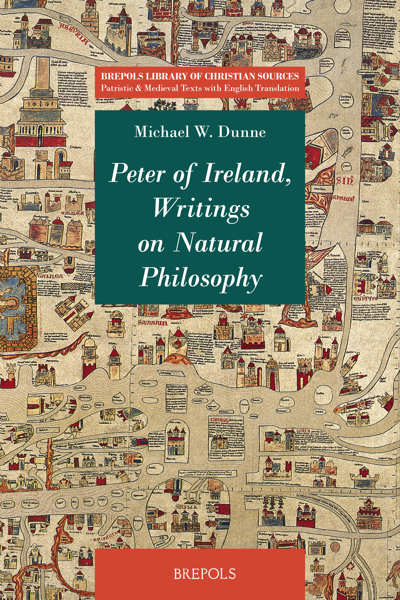
Radulph of Rivo
General Ecclesiastical Calendar and On the Observance of Canons
Gerhard Eger, Zachary Thomas (eds)
- Pages: 459 p.
- Size:156 x 234 mm
- Illustrations:1 maps color
- Language(s):English
- Publication Year:2026
- € 85,00 EXCL. VAT RETAIL PRICE
- ISBN: 978-2-503-61792-3
- Paperback
- Available
- € 85,00 EXCL. VAT RETAIL PRICE
- ISBN: 978-2-503-61793-0
- E-book
- Available
Radulph of Rivo’s early 15th-century treatise De canonum observantia is a groundbreaking work of liturgical scholarship and a rousing cry for reform of Church life and ritual
Radulph of Rivo (ca. 1350–1403) was dean of Our Lady of Tongres and both rector and professor of canon law at Cologne. After studies at Paris, Italy, and Orléans, he embarked on a career in Church government, promoting reform measures and acting as legal counsel for the Brethren of the Common Life. His œuvre includes works on history, grammar, Scripture, and liturgy, of which the most prominent is De canonum observantia.
Gerhard Eger is a Masters student in Medieval Cultures at the University of Barcelona.
Zachary Thomas is a doctoral student in Medieval Studies at Cornell University.
When the canons of the Congregation of Windesheim set about codifying their liturgy in the final decades of the 14th century, they had to reckon with the striking variety of customs among the different dioceses, nations, and religious orders of the Roman rite. In their perplexity, they turned to Radulph of Rivo (ca. 1350–1403), dean of Our Lady of Tongres and canon law professor at Cologne. Radulph travelled to Rome to discover the sources of its ancient liturgy. There he was alarmed to discover that even in Rome authentic traditions had been displaced by novelties, and he accused the Franciscans specifically of unlawfully abbreviating or altering the offices. In his reply to the canons of Windesheim, entitled De canonum observantia (ca. 1400), Radulph charts a course of conservative liturgical reform that hews closely to Roman authority. He appeals to canon law, the approved uses of ancient churches and religious rites, the famous commentators, and old liturgical books he found in Rome to establish the authoritative form of Western worship. On the eve of the great changes that swept Europe in the next century, Radulph’s treatise stands out as a careful and competent guide to the Latin liturgical tradition and an invaluable witness to contemporary practice. His conservative intervention looks forward to the work of the Tridentine liturgical commission, whose members had access to Hittorp’s 1568 edition of his treatise. Our edition provides modern readers with the first English translation of Radulph’s work and copious notes to illuminate this fascinating period.
Radulph of Rivo, the Devotio Moderna, and Liturgical Reform in the Low Countries c. 1400
Radulph’s Life and Works
Radulph’s Extant Works
Radulph as a Proto-Humanist and Diocesan Historian
Radulph, the Brethren of the Common Life, and the Windesheim Congregation
The Windesheim Liturgical Reform
Canons Observing Canons
Historical Theologies of the Liturgy
Radulph’s Knowledge of Roman Liturgical Traditions
Radulph’s Legacy: Influence or Oblivion?
Radulph’s Reception in the Post-Tridentine Period
Text and Translation
General Ecclesiastical Calendar
On the Observance of Canons
Endnotes
Bibliography
Ancient and Medieval Authors
Liturgical Books
Canonical Sources
Modern Authors
Index
Liturgical Propers
Scriptural Citations
Citations of Ancient and Medieval Works
Canon Law Citations
Subjects and Proper Names




